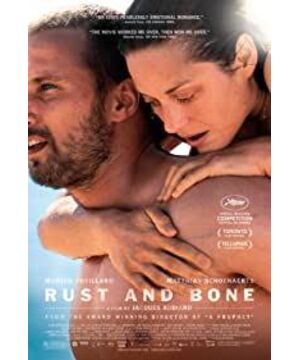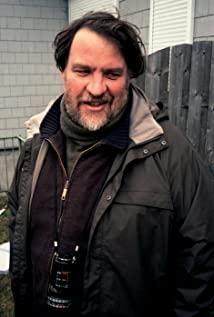For most people, it is difficult to see their own life from a clear, comprehensive and objective perspective, about the past, future, self, others, family, occupation, love, friendship... …Although I am not exempt from the custom, I don’t make wishes by the birthday cake very much about watching the fire in a hole and splendid beauty. Most of the time I lie down and watch movies in revenge, such as Luther’s story.
Key Question 1: What is the point of the Luthor film?
I've asked myself how to define Luthor, certainly not DC's Luthor, although I'm clearly looking forward to this one more than Joker. The so-called Luthor film is an artistic behavior and process that uses visual aesthetics and based on the perspective of growth, to reconstruct the unsatisfactory ordinary characters and their life (segment) stories, with the meaning and value of people as the axis of return. Usually such films are aimed at the bottom people of the whole history and the world, so "The King's Speech", "I Want to Hide", "Pirosmani", "Frida", "She's Lonely than Fireworks" are some It is not within the scope of this topic; usually such films focus on the small and have a more intimate, real, and pure texture, which can give the viewers a sense of deja vu and wake up from big dreams, pour cold water and see the sun, and live forever A rich experience to return to Japan. Therefore, Luther's film is a must-have recipe for home travel, prosperity, husband and child, and no wind and waves. PS.No.6 is a pit dug by the author himself. If parents do not object, if there is more unsatisfactory, larger growth span, and more life inspiration than this protagonist, it will be named No.5. Otherwise, No.7 will be named after And so on. Legend has it that European films are delicate. The director of this film, Odia, is one of the best. After all, he has a vicious eye for writing scripts and reading philosophy. What kind of perspective, what kind of questioning, what kind of strength dances with the audience. The character characterization, narrative strategy, physical interaction, scene rendering, and rhythm control here seem to be new and sharp-edged, all of which are thoughtful and well-prepared. I have personally witnessed that the scattered halo style and the freshness of the colors are not only Exclusive to Japanese directors. Like all French literary films, the male and female protagonists are handsome and fleshy, and the nene of the male and female protagonists in the camera is so beautiful (refer to the picture above). Treacherous and dangerous. Legendary anger is a dormant beast, and sadness will eventually come to the world. Let me ask, if there is no concept of time, what is the difference between people?Perhaps what always attracts me to the film is the unconditional acceptance in a limited time, the safe observation of how others feel, express, and respond to my own feelings in an equal relationship, and how the self understands the emotions, behaviors, and experiences of others in a repeated questioning. Curiosity arises, and the combined use of the above saturates self-experience with cognition. A good movie lies in the interplay between light and shadow and the heart. It is a moment of comprehension when you suddenly recall a line, and it is also a scene that seems familiar to you. In the era of fast food, it is too easy to criticize a slow movie that is not exciting. After all, there is no two pounds of blood pouring on the head of American movies, and no three pounds of tears in Korean dramas. I don't know if it is because of the French's typical double standard of romance and old-fashioned, casual and nostalgic, disgust and self-disgust, that makes it possible to bloom a beauty that gently expresses the gentle emotions of human beings on the watershed of elegance. However, the above has nothing to do with living a good life with half a dime. Of course, it may also be that the amount of consideration is not large enough, and the qualitative change has not been caused.
Key question 2: When is it easy for people to meet bad people?
I kept paying attention to the sunshine in the smile of the heroine's rooftop (refer to the picture above), which made me further believe that liking is not pain, and pain is not liking. Take procrastination as an example. To put it bluntly, procrastination is a process of internal conflict between the body expressing that it does not like the choice, but knowing that someone we love or love likes the choice. In the same way, in a movie, what we pay attention to, what we don’t pay attention to, what we like and what we don’t like are all self-affirmation and self-expression. So the question is, what can you do when you know you don't like it? There is a non-mainstream answer that comes from the understanding of "did" in the three-brain theory. When the tragic time of escaping and fighting comes, it is undoubtedly a self-continuing mode that maximizes, minimizes energy consumption and minimizes risks. Depression, bipolar disorder, autism, and even sleep are all deformations or extensions of sleep. Logically, if you encounter a small difficulty, you can sleep for a while, and if you encounter a big difficulty, you will be ill. There is nothing wrong. Before the open ending of the movie, the male and female protagonists tried, talked, explored, and inquired about each other from beginning to end, just like countless idiots and haters in the world, kneeling, worshipping, and begging to find a home for their hearts. The beginning and the end of love are not oneself. From a positive aspect, turning your attention back to yourself can help you understand your partial, one-sided, and limited self. Even if it is extremely difficult for anyone to change oneself, only oneself can truly change oneself. My analysis of the female protagonist's mental process is that because the rooftop scene knew what she liked, she first understood self-love, and then she later loved the male protagonist, and was loved by the male protagonist, but she liked what she liked more. Therefore, we should get the strength and happiness from liking ourselves, instead of spending all our strength and happiness on liking others. Perhaps another point of the open ending is that what matters is the mutual comfort between life and life, and the new hope that is built together in the face of adversity. After all, everything ends, and everything never ends. So the question is, what is the use of knowing what is immutable, and why should knowing what is changeable? And the best distance between people is peace in pain, or joy in absurdity?
Key question 3: When are people the most unlucky?
In a nutshell, the film depicts a relationship that has been lost and gained. Interpreted in the word order of Western philosophy, it is a story about no irreparable pain, no irreparable loss, everything gained will be lost in a certain way, and everything lost will return in a certain way. (I'm proud, I'm Chinese!) The male protagonist is a stereotype of black boxing in all movies. Every day and every night, his face is full of tragedies (refer to the picture above of a boxer fighting withered innocent molars) when When the female protagonist expressed her distress and expressed her willingness to contribute money to help him avoid the risk of physical black boxing, the male protagonist interrogated: You work for money, ah, ah, ah, ah, ah, ah, ah, ah, ah, ah, don't everyone work for love--! Convince the heroine here. In the latter section, the fable says that once the palm bone is broken, it will never grow back completely, and the male protagonist injured his hands in order to save his son. I gave up here as much as I did, and immediately knelt down for the male protagonist to establish such correct values as above! So I echoed with the director very much in my heart: Is it true that people are deeply in love with what they are in love, or are they looping back and forth in a hole? Many masters have spoken out and agreed that human nature is inherently greedy. Imagine that if a person spends his life only in a narrow hole dug deep by himself, would it be better than going outside in the sun and rain, and occasionally haunted by predators? ! After all, the former has won a big victory in terms of satisfying the sense of security, not to mention that in the peaceful era, no matter how much chicken and dog jumps around, it will not end in ruins and bloody storms. Do people enjoy a narrowed and peaceful life, or a less narrowed nothingness? Coincidentally, today the author is both weak and thinking about my mother, but people definitely can't directly cry out the pain, I have endured for a long time and gradually calmed down. Where can I play mahjong? It's strange to slap me back when I receive a broom star-like moaning and slap it. Thinking about it this way, what you get is what you lose, and what you lose is normal; those who don't get what you ask for, either escaped the catastrophe in hindsight, or what should be lost will be exchanged for a tight grip with other overdrafts. Thanks to the director, there is no light, no darkness, no coffin, no conclusion at the end, just as life has no pain, no joy, no sadness, no happiness. The continuous continuation of life requires human beings to constantly solve various problems in life, which may be far more important than winning the gold belt of the boxing champion and winning the return of the beauty. Finally, knocking on the blackboard, the heroine verified Colonel Frank's motto on the rooftop and encouraged them together.
Remember, when in doubt, make love. —Frank Slade
View more about Rust and Bone reviews









